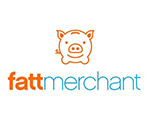Overview of the term "omnichannel payments" and how it relates to business.
Have you heard the term “omnichannel” or “omnichannel payments” and wondered what it means? In the case of payments, omnichannel -- literally meaning multiple channels -- refers to the ability to take payments in a variety of ways without a jarring difference in convenience, service or even branding.
This means that your online payment method should be as convenient and professional for the customer as it would be if they walked into your store to make a purchase. However, omnichannel goes beyond simply online or in-person payments – it also includes invoicing, recurring billing and mobile payments. These days, it is more important than ever to accept payments in the method your customers prefer.
Accepting payments
When it comes to taking payments, you will want to make sure you can accept not only cash, but also credit cards, debit cards, checks and maybe even contactless payments like Apple Pay. You will need to determine how you will accept payments and work with a processor that offers the services you need.
Many businesses do not need an omnichannel solution. If your business only accepts payments in one way (either all online or all in-person), omnichannel will not matter to you. However, if you accept payments in multiple ways (partially online and partially in person, in person and over the phone, etc.) then you will have two options: work with processors and obtain merchant accounts separately for each acceptance method or work with a processor that can offer an all-in-one payment processing solution.
Essentially, an omnichannel payment processing solution provides the ability to accept payments in multiple ways through one processing company. For example, a medical practice that swipes clients’ cards if they are in the office but also accepts payments over the phone could benefit from an omnichannel payment processor. It is not required that you use one processor; but in many cases, it will be easier for everything from reporting to customer service.
Payment types and channels
In payment processing, there are really only two types of credit card acceptance: “card-present,” where staff physically runs a card through a reader, and “card-not present,” where the card is not swiped. However, within those two categories, there are multiple ways of accepting the payment, including:
- Online shopping carts or “buy” buttons
- Recurring / subscription billing
- Invoicing with links to secure payment forms
- Keyed transactions (often used for phone or mail orders)
- Card readers connected to smartphones
- Traditional countertop credit card machines or POS systems
- Contactless / NFC transactions like Apple Pay
It is important to note that there are situations in which the customer may present their card at the time of sale yet the transaction does not automatically become “card-present.” If you hand key the card information, the transaction becomes “card-not-present.” A transaction is only considered “card-present” if the card is swiped (magnetic stripe cards), dipped (chip cards), or tapped (Apple Pay and contactless / NFC payments.)
Which methods you need will depend on your specific business. A general retailer may only need online and swiped payment capabilities, while a gym or yoga studio may want recurring billing and swiped payments. When deciding which channels you will offer, be sure to consider what matters to your customers. B2B companies will almost certainly want to offer invoicing, while pizza delivery restaurants might find phone orders and smartphone processing to be vital.
Finding a processor
Once you know what payment methods and channels you are looking for, you will need to find a credit card processing company that can offer those channels. Simplicity is one benefit to an omnichannel solution, as one company handles all of your payment needs. Instead of calling multiple customer service departments, you will usually only need to work with one company when you need assistance. Additionally, consolidated reports on key business metrics such as sales trends and revenue make for easier business management.
An exception for customer service with a single point of contact may come into play if you work with another company for a POS system. Some processors, like First Data, also offer POS systems and function as a true all-in-one.
However, some businesses find that they need a particular POS system with more advanced features. In those cases, you will often be able to use the POS system of your choice with different processors, but you may have two different points of contact – one for your credit card processing / payment needs, and one for installation and assistance with your POS system itself.
It is also worth noting that as of January 2017, POS providers must be QIR-certified per Visa requirements.
Multiple processors or multiple accounts?
There is not much benefit to working with multiple processors for one business, even if you take payments through multiple channels. While some businesses feel strongly about having a “backup” processor, a second processor will likely charge fees on an account you may not even use regularly, and the hassles of switching equipment for a temporary issue are likely to cause more trouble than it’s worth.
That said, having multiple merchant accounts with your processor is often a good idea. In particular, if you have a mix of card-present and card-not-present sales, maintaining two merchant accounts may positively affect your pricing.
While “omnichannel” sounds like a trendy buzzword, the concept of offering multiple payment methods to your customers is sound if your business offerings warrant it. For your customers, purchasing items online should be as convenient and easy as buying in your store.
Photo credit: Shutterstock / sbw18
Best Small Business Credit Card Processor - Helcim
Best Processing Terms - Flagship
When you're looking for a credit card processing service, one feature you should insist on is a contract with month-to-month terms.
Best Processing Rates - Fattmerchant
Looking for a solution for low card processing rates? Consider Fattmerchant to save the most per transaction.



